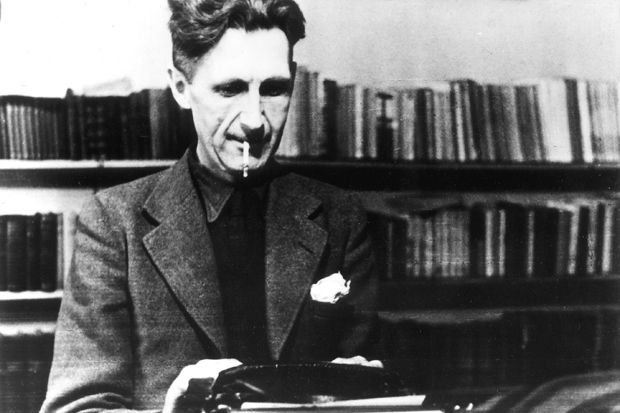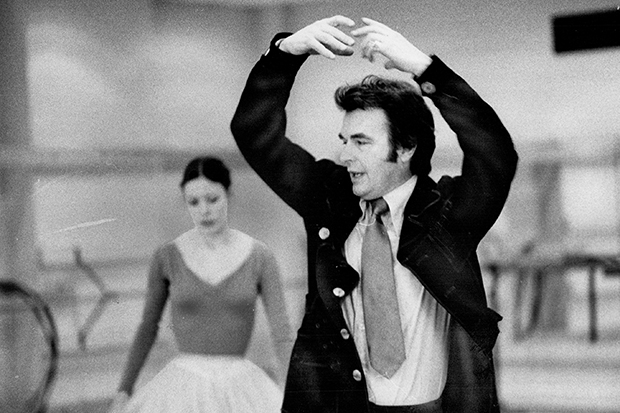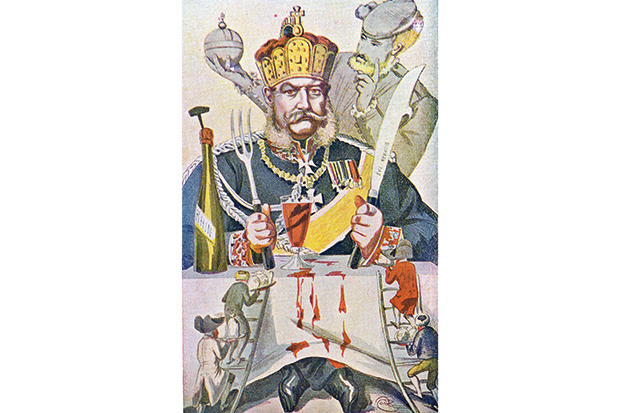Ian McEwan’s novels are drawn to enclosed spaces. There is the squash court upon which the surgeon plays a meticulously described game in Saturday, and the honeymoon suite in a little seaside hotel for the awkward newlyweds in On Chesil Beach. In Atonement, the mother is kept in her bedroom by migraines while her daughter (spoiler alert) dies in a bomb-hit Underground station, and in the famous opening to his early novel Enduring Love a child is carried away in the basket of a hot air balloon. ‘Certain artists in print or paint flourish, like babies-to-be, in confined spaces,’ he writes in his new novel Nutshell, which is — oddly but perhaps logically — narrated by a foetus from inside the womb.
‘I squat here sealed in my private life, in a lingering, sultry dusk, impatiently dreaming,’ the foetus explains; but the problem is that its life in the womb is not private at all. It does not yet know whether it is a girl or a boy, and can of course see little, but it can hear everything: conversations, characters coming and going, and the podcasts which its mother listens to when she cannot sleep. It likes the Reith lectures; the mother must listen to an awful lot of Radio 4, as the unborn child has reliably middle-class opinions about world politics. It also sounds a bit like Hannibal Lecter: ‘You may never have experienced… a good Sancerre decanted through a healthy placenta.’
Confinement has a double meaning: held in a restricted space, and the condition of childbirth. Nutshell is confined in a further way by its constant allusions to Shakespeare’s play Hamlet, which gives McEwan’s novel its vocabulary, style and plot. There are key words taken from the play (‘Seems, Mother?’, ‘common’) and the foetus’s mother, named Trudy after Hamlet’s Gertrude, is having an affair with her brother-in-law Claude; there are in-jokes (Claude orders ‘baked meats’ from the local Danish takeaway) and paragraphs of pastiche. Claude and Trudy are planning to murder Trudy’s husband, a romantic and a poet, over the inheritance of a big house in St John’s Wood. The foetus speaks in a cod-Shakespearean soliloquy: ‘Who is this Claude, this fraud who’s wormed in between my family and my hopes?’ it asks, and there are at least three separate allusions to Shakespeare’s play in that single question.
Most of all, the novel borrows a central motif from the play: that of eavesdropping. The foetus listens, and puts together the pieces of the plot, and more than this is slowly being formed by the echoes and whispers it hears from the world outside. If you’ve ever wondered how a foetus might describe the taste of single malt whisky, it probably isn’t like this: ‘An old military road through a cold glen, a whiff of wet stone and peat, the sound of steel and patient trudging on loose rock, and the weight of bitter injustice.’ But this mismatch between what it says and what it could possibly know is precisely the point. It is, in the womb, ‘a slate that writes upon itself as it grows by the day and becomes less blank’. It is growing into itself by copying the world.
Some of this has been done before. John Updike’s novel Gertrude and Claudius retells the story of Hamlet as a sympathetic account of the adulterous couple, while Laurence Sterne’s riotous 18th-century novel The Life and Opinions of Tristram Shandy, Gentleman begins with the hero narrating his own conception. But this unoriginality is also the point. How we know the world, and what changes when we shift our perspective, are the big novelistic questions, and these are the questions McEwan has struggled with as nobly and intelligently as anyone has throughout his celebrated career. ‘However close you get to others, you can never get inside them, even when you’re inside them,’ notes the foetus, in a characteristically sinister flourish. As we read, this tight little novel — like a foetus in the womb — grows into something much grander and weightier than itself.
The post Listen with Mother appeared first on The Spectator.
Got something to add? Join the discussion and comment below.
Get 10 issues for just $10
Subscribe to The Spectator Australia today for the next 10 magazine issues, plus full online access, for just $10.
You might disagree with half of it, but you’ll enjoy reading all of it. Try your first month for free, then just $2 a week for the remainder of your first year.














Comments
Don't miss out
Join the conversation with other Spectator Australia readers. Subscribe to leave a comment.
SUBSCRIBEAlready a subscriber? Log in